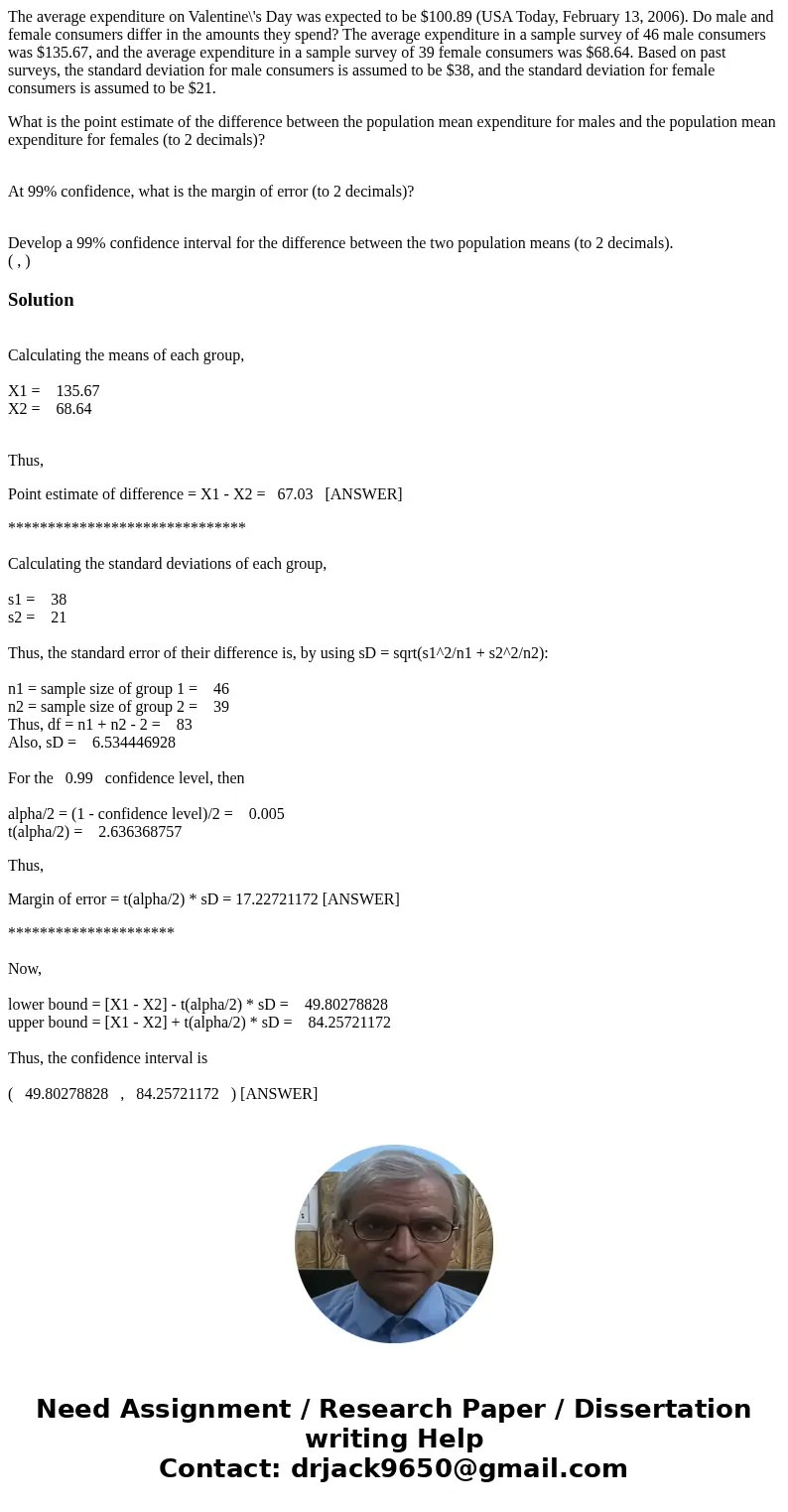The average expenditure on Valentines Day was expected to be
The average expenditure on Valentine\'s Day was expected to be $100.89 (USA Today, February 13, 2006). Do male and female consumers differ in the amounts they spend? The average expenditure in a sample survey of 46 male consumers was $135.67, and the average expenditure in a sample survey of 39 female consumers was $68.64. Based on past surveys, the standard deviation for male consumers is assumed to be $38, and the standard deviation for female consumers is assumed to be $21.
What is the point estimate of the difference between the population mean expenditure for males and the population mean expenditure for females (to 2 decimals)?
At 99% confidence, what is the margin of error (to 2 decimals)?
Develop a 99% confidence interval for the difference between the two population means (to 2 decimals).
( , )
Solution
Calculating the means of each group,
X1 = 135.67
X2 = 68.64
Thus,
Point estimate of difference = X1 - X2 = 67.03 [ANSWER]
******************************
Calculating the standard deviations of each group,
s1 = 38
s2 = 21
Thus, the standard error of their difference is, by using sD = sqrt(s1^2/n1 + s2^2/n2):
n1 = sample size of group 1 = 46
n2 = sample size of group 2 = 39
Thus, df = n1 + n2 - 2 = 83
Also, sD = 6.534446928
For the 0.99 confidence level, then
alpha/2 = (1 - confidence level)/2 = 0.005
t(alpha/2) = 2.636368757
Thus,
Margin of error = t(alpha/2) * sD = 17.22721172 [ANSWER]
*********************
Now,
lower bound = [X1 - X2] - t(alpha/2) * sD = 49.80278828
upper bound = [X1 - X2] + t(alpha/2) * sD = 84.25721172
Thus, the confidence interval is
( 49.80278828 , 84.25721172 ) [ANSWER]
*****************************

 Homework Sourse
Homework Sourse